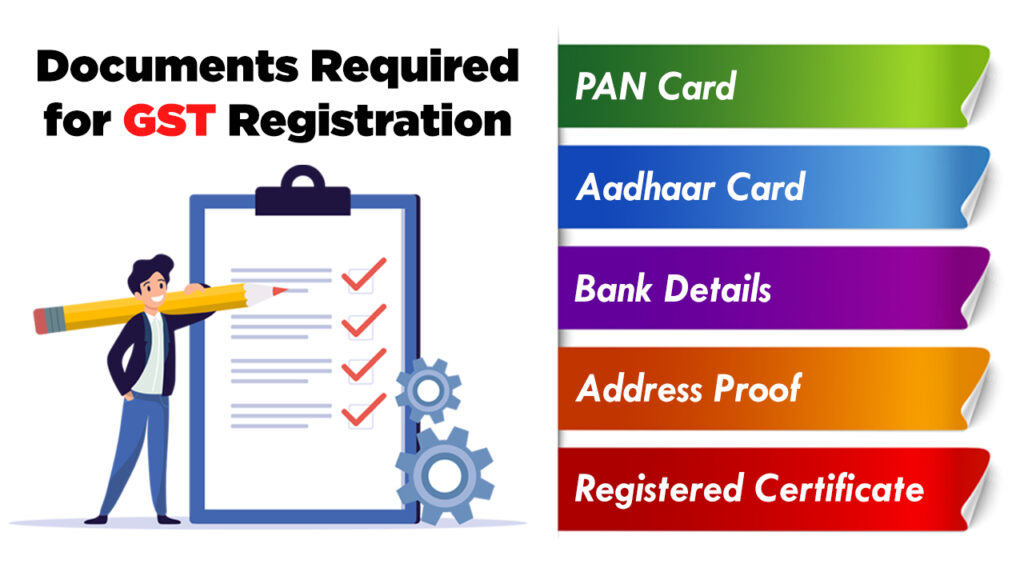Stay Clear Of Usual Blunders in Singapore GST Registration for Your Organization
Stay Clear Of Usual Blunders in Singapore GST Registration for Your Organization
Blog Article
The Ultimate Overview to Simplifying the GST Registration Refine and Demands for Small Organization Owners

Recognizing GST Essentials
To understand the fundamentals of the Product and Services Tax Obligation (GST) system, little business proprietors must initially comprehend its underlying ramifications and principles. Under the GST routine, companies are called for to gather and register tax on part of the government, making sure transparency and conformity.
One of the crucial concepts of GST is input tax obligation debt, which allows companies to declare debt for taxes paid on their purchases. Understanding these basic principles is important for little service proprietors to browse the intricacies of the GST system and make certain conformity with the regulation.
Eligibility Criteria for Registration
Having established a foundational understanding of GST concepts, small business owners must now fulfill details qualification standards to wage the enrollment procedure. In India, entities involved in the supply of products or solutions with a yearly accumulation turn over going beyond Rs. 40 lakhs (Rs. 10 lakhs for unique classification states) are needed to register for GST. Furthermore, specific companies such as those associated with inter-state supply of goods, casual taxable individuals, and those needed to pay tax obligation under the reverse fee system should sign up for GST regardless of their turnover. Organizations that were signed up under the previous tax obligation routine (VAT, service tax obligation, and so on) are likewise mandated to register under GST. However, farming companies that only provide create out of primary manufacturing are excluded from GST registration. It is important for local business owner to meticulously evaluate their qualification based upon these standards to guarantee conformity with the regulation and prevent any charges for non-compliance.
Files Needed for GST Registration

Simplified Enrollment Process Actions
Adhering to the collection and verification of the requisite documents, the enrollment process for GST can be navigated with a series of streamlined steps designed to promote effective compliance address for small company owners. The initial step involves checking out the GST website and selecting the 'New Enrollment' option. Ultimately, the candidate should fill out Part A of the GST REG-01 form with information such as PAN, mobile number, and e-mail address to obtain an OTP for confirmation. When the OTP is obtained and gone into, a Momentary Reference Number (TRN) is produced for further procedures. The following step calls for filling out Component B of the form with needed company information, submitting sustaining documents, and finishing the confirmation procedure utilizing DSC or EVC. Upon effective verification, an Application Recommendation Number (ARN) is released, indicating the conclusion of the GST enrollment procedure. By complying with these streamlined steps, small company owners can properly register for GST and make sure compliance with tax laws.
Tips for Ensuring Conformity
To keep governing adherence and operational honesty, attentive oversight and aggressive procedures are pivotal in guaranteeing compliance with GST requirements for tiny organization owners. Small company owners must remain updated with GST policies, filing deadlines, and any modifications in tax rates to stay clear of penalties and keep a great standing with tax authorities. One essential tip for compliance is to maintain in-depth and exact records of all deals, consisting of invoices, expenditures, and invoices connected to GST. Routinely integrating financial records with GST returns can assist in recognizing and rectifying any kind of inconsistencies promptly. In addition, conducting regular inner audits or seeking specialist aid can make certain that the organization is adhering to all GST policies correctly. It is additionally essential browse around this web-site for little organization proprietors to invest in GST-compliant accounting software program that can simplify the tax filing procedure and reduce mistakes. Finally, going to GST awareness workshops or training programs can boost understanding and compliance with GST guidelines, ultimately benefiting the company in the long run.
Final Thought
Finally, local business proprietors must comprehend the essentials of GST, fulfill the eligibility standards, gather required documents, and follow the simplified enrollment procedure actions to make certain conformity. By streamlining the GST registration process and demands, local business owners can prevent charges and operate their companies efficiently within the legal framework - Singapore GST Registration. It is important for local business proprietors to remain educated and compliant with GST laws to maintain an effective business procedure
Tiny company proprietors seeking GST enrollment have to guarantee they gather and send the required papers to complete the registration procedure effectively. The documents required for GST enrollment typically include evidence of business registration or consolidation, PAN (Long-term Account Number) card of the service entity, address and identity proof of the promoters/partners/directors, pictures, address evidence of the place of service, financial institution account declarations or canceled cheques, and authorization types. Going to GST recognition workshops or training programs can boost understanding and compliance with GST regulations, inevitably benefiting the business in the long run.
By streamlining the GST registration Visit Website process and requirements, small service owners can stay clear of fines and run their services smoothly within the legal structure. It is vital for tiny service proprietors to stay informed and certified with GST policies to keep an effective service procedure.
Report this page